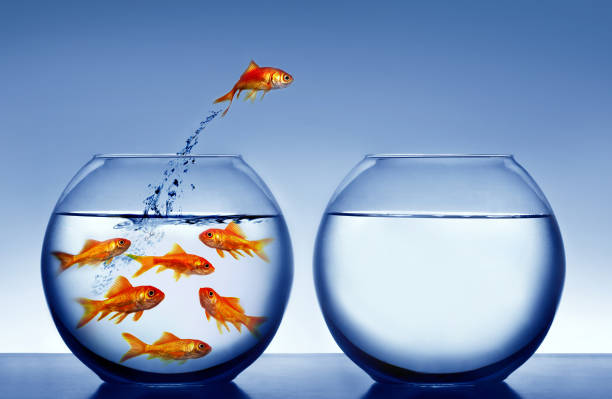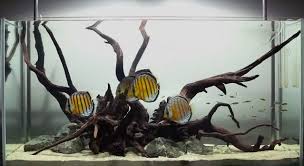Junior Members Area
Aquariums in the classroom and home provide lots of learning opportunities for all ages. Involving young people in the care and maintenance of an aquarium, and in the close observation of its inhabitants, is a great way to involve them in the responsible care of animals and to introduce topics across a vast curriculum, from biology and environmental studies to maths, ethics and art.
Our Junior Section has been designed to cover a range of activities and topics for our Junior members in support of this philosophy.
 Some colouring and quiz worksheets to download - Downloadable colouring sheets with two aquarium fish on each sheet and three questions for each fish.
Some colouring and quiz worksheets to download - Downloadable colouring sheets with two aquarium fish on each sheet and three questions for each fish.
A ten page fish counting booklet to print out - Younger children are encouraged to count and colour ten different freshwater tropical fish.
A single A4 sheet that can be printed on paper or card. Colour the fish, fold and paste and then cut out the shapes to make a simple mobile by hanging them from a coat-hanger or rods. Requires supervision/assistance.
 Learn about aquariums and fishkeeping while having some fun with these mini projects.
Learn about aquariums and fishkeeping while having some fun with these mini projects.
 Are you ready to tackle something more challenging? Try these:
Are you ready to tackle something more challenging? Try these:
A guide for aquarium educators, students and keepers to setting up an Australian biotope aquarium. A resource about biology, physics, chemistry and mathematics. Prepared by Dave Wilson of Aquagreen Pty Ltd
How does fish waste get processed in an aquarium?
Extend your research skills by identifying the origin of some recently discovered freshwater fish.
What is a "fish" and where did they come from?
How should Siamese Fighters be cared for? How do you think about "animal wefare" and how can people decide what is right for animals.
How you can tell a lot about a fish by what it looks like.
You can also download this article for more information about the parts of a fish.
What's going on in a wetland or river when there's nobody to feed the fish? A complex food web, that's what.
Our Junior Section has been designed to cover a range of activities and topics for our Junior members in support of this philosophy.
Kindergarten & Below

Sheet #1
- Clown Loach and Dwarf GouramiSheet #2
- Angel Fish and Clown FishSheet #3
- Seahorse and RainbowfishA Colouring and Counting Book for Young Fishkeepers
A ten page fish counting booklet to print out - Younger children are encouraged to count and colour ten different freshwater tropical fish.
Get Mobile-ised!
A single A4 sheet that can be printed on paper or card. Colour the fish, fold and paste and then cut out the shapes to make a simple mobile by hanging them from a coat-hanger or rods. Requires supervision/assistance.
Primary School Ages

Where do you think they come from?
Use the internet to learn about where your aquarium fish come from.
Why do fish "jump"?
Why does an animal that lives in water sometimes jump into the air?
Breeding and raising tropical fish at home or in the classroom
Would you like your fish to breed and have babies? Here is a quick guide.
Celebrity Fish
Some interviews with fish. (True!) Find out what fish like.
Not Just Fish
Fish are not the only animals you can keep in a home or classroom aquarium
Fish Bits
Do you know what the different parts of a fish are called?
High School Ages

The School Biotope Aquarium - Aquarium Manual and Maintenance Guide
A guide for aquarium educators, students and keepers to setting up an Australian biotope aquarium. A resource about biology, physics, chemistry and mathematics. Prepared by Dave Wilson of Aquagreen Pty Ltd
The Invisible Chemistry of Nitrogen
How does fish waste get processed in an aquarium?
The "Where Do They Come From" Challenge
Extend your research skills by identifying the origin of some recently discovered freshwater fish.
The Puzzles of Fish Evolution
What is a "fish" and where did they come from?
Betta Homes and Gardens (for Siamese Fighters)
How should Siamese Fighters be cared for? How do you think about "animal wefare" and how can people decide what is right for animals.
Reading Fish
How you can tell a lot about a fish by what it looks like.
You can also download this article for more information about the parts of a fish.
Who's Eating Who?
What's going on in a wetland or river when there's nobody to feed the fish? A complex food web, that's what.
